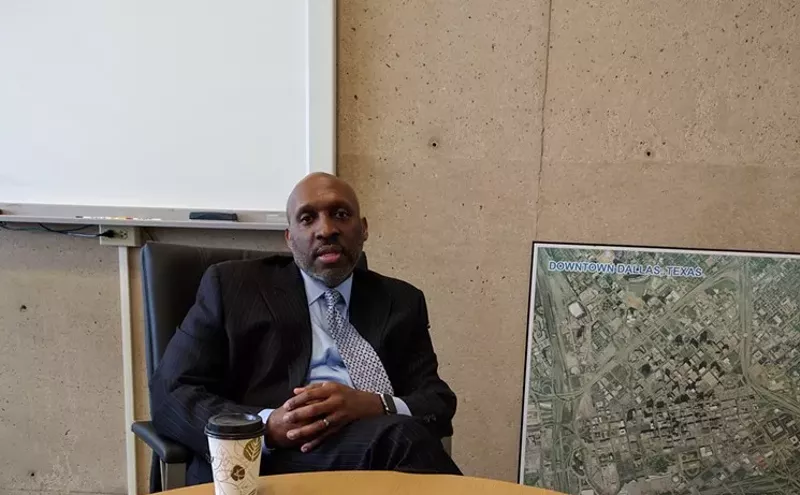At the end of last year, the U.S. Sentencing Commission adopted Federal Sentencing Guidelines that reduced penalties for crack cocaine offenses, after years of study and debate determined folks popped for crack usually got about three and a half years more prison time than people convicted of powder-cocaine offenses. The new guidelines went into effect March 3, and they were retroactive -- meaning, thousands of convicts became eligible for shorter sentences last month, while many were released outright. But this morning The Los Angeles Times finds that all isn't going swimmingly in the race to review cases -- in Dallas, in particular.
--Robert WilonskyIn Dallas, one judge has refused to allow federal defenders to represent crack offenders in his court, saying they have no right to counsel at this stage of the proceedings. That has left hundreds of inmates having to file jailhouse petitions to gain their freedom.
After that ruling, the federal public defender in Dallas, Richard Anderson, sent out a mass mailing to several hundred eligible inmates to help them prepare their cases. Many of the inmates' applications are incomplete or have errors. The complexities of federal sentencing law have caused added confusion.
"The playing field isn't very level," Anderson said.












